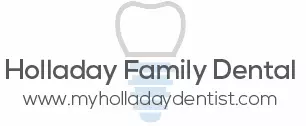
19 May 2017 Can Dental Mouth Guards Eliminate Sleep Apnea?
Sleep apnea is a potentially serious health issue that affects millions of people around the world, and unfortunately, the majority of them are either unaware that they suffer from the condition or have yet to seek treatment. However, the potential problems that these sleeping troubles can create for both your health and your overall quality of life means that it’s important that all apnea sufferers get the help they need. Luckily, many cases can be treated simply through the use of a nighttime mouth guard, which means that your dentist might just hold the key to a better night’s sleep.
What is Sleep Apnea?
Apnea is a condition where a person stops breathing for short periods of time during sleep, which obviously causes trouble sleeping. In fact, the term apnea simply means a cessation of breath. In many cases, these apneas are caused by the throat and/or nasal passages being partly or fully blocked. These blockages are quite common in people who are overweight or suffer from certain nasal conditions such as a deviated septum. However, many times the condition is simply caused by the person’s tongue relaxing and thus blocking the throat whenever the person sleeps on their back.
When these blockages happen, the individual typically begins heavily snoring and then eventually stops breathing fully for anywhere from a few seconds to a minute or more. Eventually, this stoppage of breath causes the person to wake up for a fraction of a second, whereby they will usually begin breathing normally and fall straight back to sleep.
Of course, since the condition takes place entirely during sleep, the majority of those with the condition are unaware that there is any problem. Typically, the only thing that they do know is that they have trouble sleeping always wake up feeling tired. However, spouses are usually much more aware that there’s a problem as the condition also tends to manifest itself in extreme snoring that often keeps the partner awake.
Common Treatment Methods
There are a great number of different methods that can potentially be used to treat the condition depending on the specific cause. In severe cases, it may be necessary for the person to sleep using a CPAP machine, which basically forces air into the lungs to eliminate the blockage issue. The problem is that these machines can be quite noisy and generally uncomfortable to sleep with.
Luckily, there are also a number of dental devices that may also be able to help provide relief from excessive snoring and sleep apnea. One such dental device works by forcing the lower jaw forward, which thus helps to keep the passageway at the back of the throat open and unobstructed. Alternatively, there are also tongue restraining devices that basically trap the tongue in place to prevent it from collapsing back into the throat and blocking the airway.
Both types of dental devices have been shown to be quite effective at treating mild to moderate apnea. As well, they may also be an option for those who suffer from severe apnea and are unable to use a CPAP device for one reason or another. Still, the only way to know whether these dental devices will be able to help correct your sleeping and breathing problems is to speak with your dentist.

